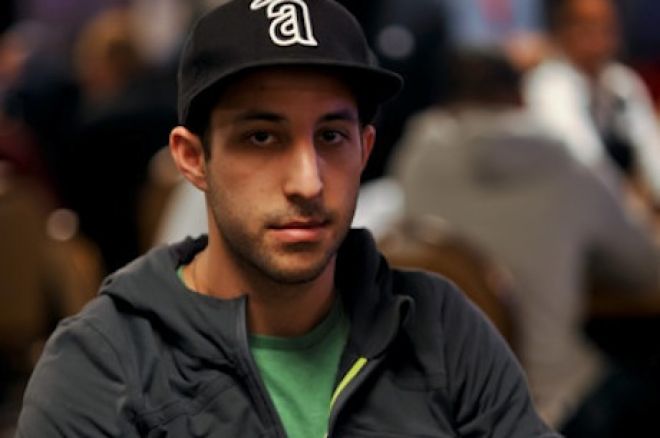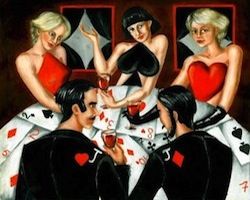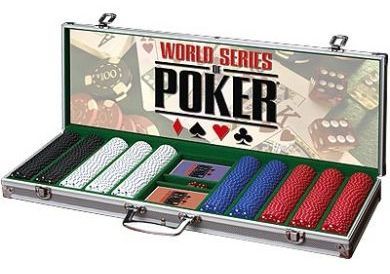Pro Blogs: The Role of Luck in Poker by Alec Torelli

Poker pro Alec Torelli brings us his latest blog on the role of luck in poker.
My thoughts on cash games and tournaments. A personal story. The sequal to Filtering the Noise: Cash Games or Tournaments?

My Take
Tournaments by nature are a more simple form of poker. The short span at which they are deep stacked (several hours of play) is quickly over and soon the play becomes rather rudimentary.
It��s not to say there isn��t skill or that experienced tournament players aren��t better at picking off spots, but the margins are much smaller, and a lifetime of playing is not enough to realize one��s true expectation.
It is often said that few can make the transition or be successful at both tournaments and cash games. That��s only half true.
The fact is, few tournament players can win at high-stakes cash games, whereas all high-stakes cash-game players can win at tournaments (not all rectangles are squares, but all squares are rectangles).
The Reasons

The primary reason better players choose cash games is obvious. There is more money. Other reasons are more obscure.
Many poker players prefer to remain anonymous. Being labeled as a professional hinders ones ability to play in the amazing games where politics is involved.
Who wants to play with someone who always wins?
Some avoid tournaments for tax purposes. Sweden for example, home of some of the world��s best poker players, enforces a usurious 50 percent tax rate on tournament winnings. Combined with the rising cost of travel and accommodation, it��s extremely difficult for the tournament poker player to show a long-term profit.
The Difference
Cash games are tougher because the players sit with more money relative to the blinds. The deeper the stacks, the tougher the decisions. This means there is more room for play and more decisions are made on the river.
River decisions are where the tough players exploit opponents the most because you always either have 100 percent or zero percent chance of winning. If you make a mistake, by folding the best hand when the pot is $10,000, it adds up quick. Translation: Far less variance and far less luck.

Tournaments Explained
Although they may be skilled, when tournament superstars win consistently, they are always benefactors of what Nassim Taleb calls the ��professional coin flipper.��
If someone enters a coin-flipping contest with 10,000 people, eventually there will be one winner. Surely that man would go on to write a book about how to beat your opponents at flipping coins. But would one really infer that this man is better than you or I?
This may be a bit dramatic, because it implies the analogy that a tournament, like coin flipping, requires no skill. While this isn��t true, the amount that exists is not enough to warrant many of the results.
My Experience
I��ve been fortunate to have a promising tournament record. With that, I��ve received some exposure, sponsors and perhaps undeserved credibility within my industry. As much as I chide some of the aspects of tournaments, there is a ton I��ve gained from my experience in them. For that I am grateful.
The 16-year-old in me still dreams of final-tabling a major televised event. It��s a sensation that will never get old.

Each year as the WSOP approaches, I vow to focus more on cash because that��s how I earn my living. But, when I get up in the morning and hear that the $5,000 event has 1,400 players offering a first prize of $1,000,000, sometimes, I can��t help myself ��?I��m compelled to play.
For all my blogs and content, visit www.alectorelli.com. Your feedback is important to me. Feel free to share your thoughts, ask me questions or leave a comment. Follow me on Twitter at @AlecTorelli. For other matters you can email me at [email protected].
Follow PokerNews on Twitter for up-to-the-minute news.








